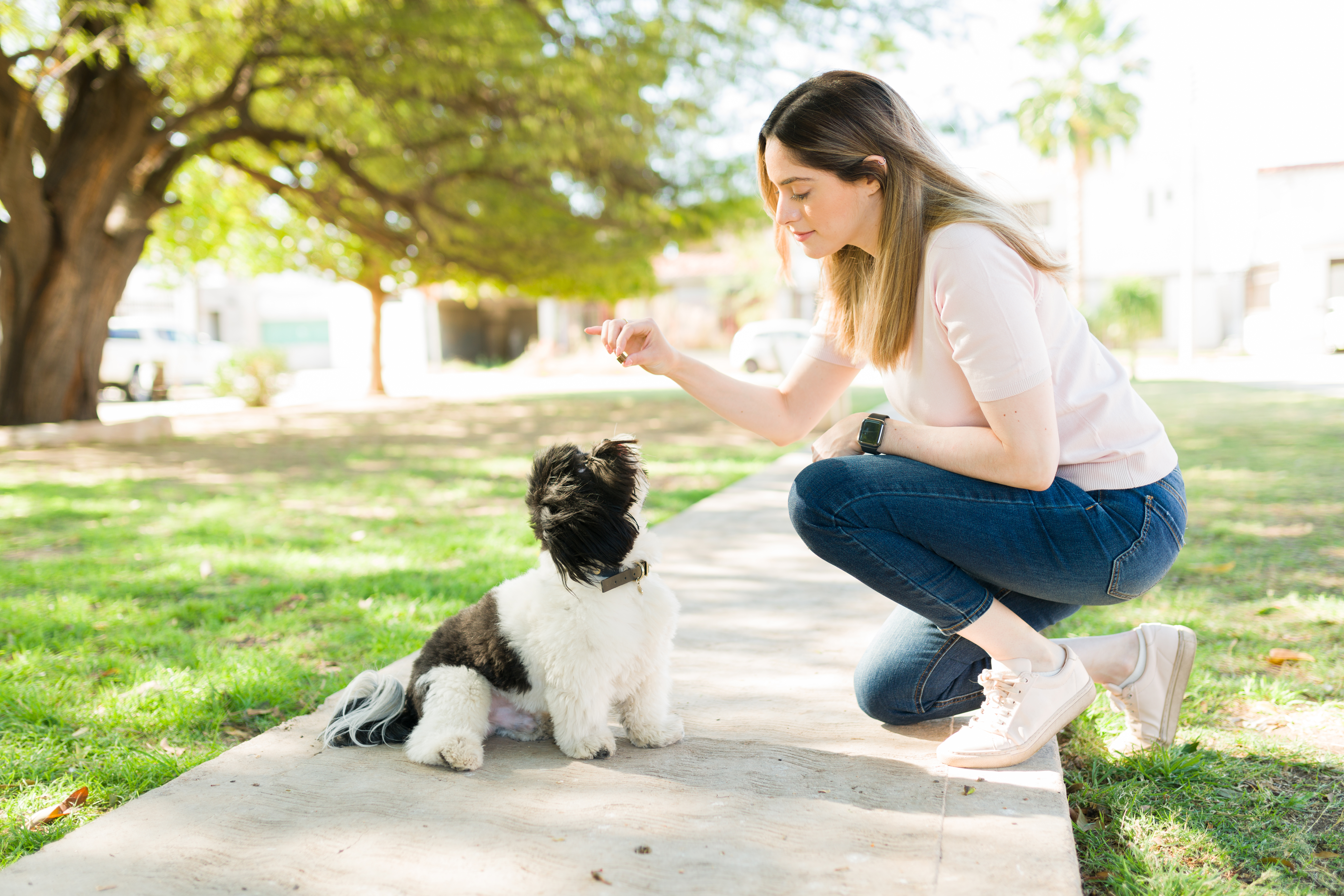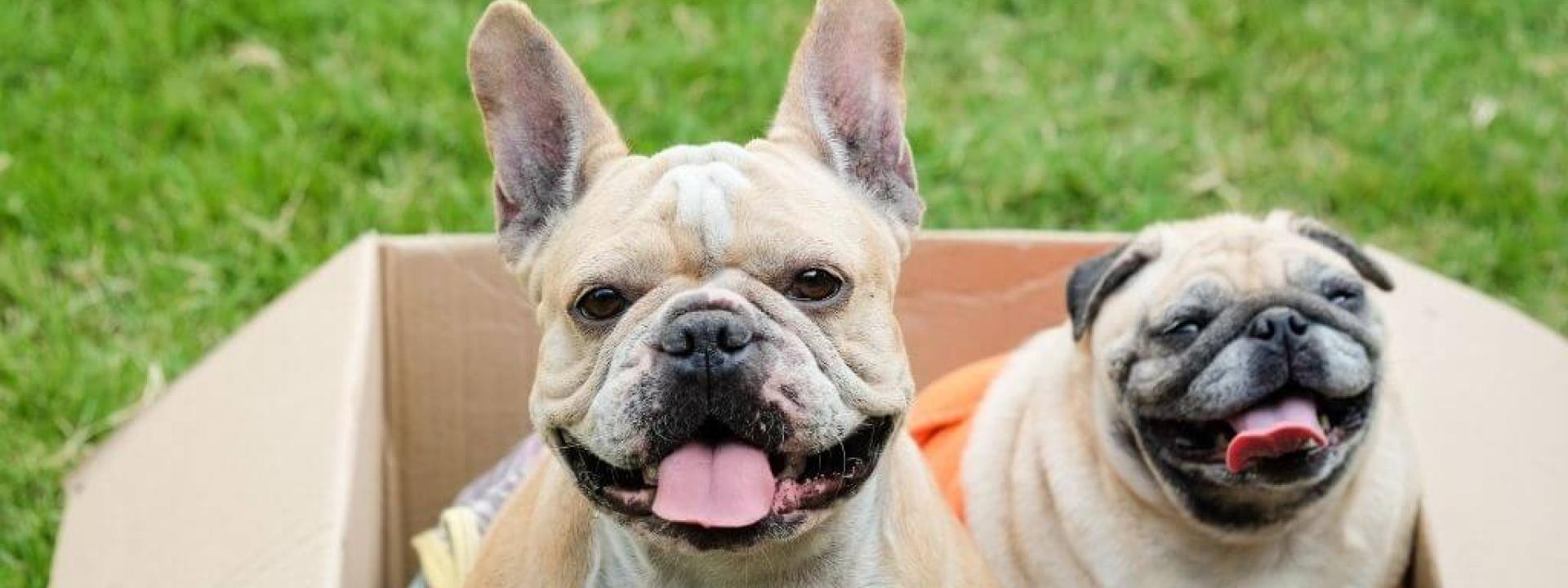The smoosh-faced dogs of the world are some of the most adorable, with French Bulldogs, Pugs, Boston Terriers, Boxers, Pekingese, and Shih Tzus tugging at our heartstrings and making everyone smile with their unique look. Classified as brachycephalic — Greek for “short-headed” — these dogs have grown in popularity and even outnumber Labradors in some countries.
Despite their overwhelming cute factor, smoosh-faced dogs face a unique set of medical issues due to their flat faces — the most common being Brachycephalic Obstructive Airway Syndrome (BOAS). Caused by their compacted facial structure, BOAS means they work harder to breathe and experience reduced airflow to their lungs.
Signs of BOAS include:
- Wheezing while inhaling due to narrowed nostrils and nasal passages
- Snorting or grunting sounds
- Snoring
- Coughing or gagging due to narrowed airways
- Exercise intolerance or collapsing after exertion due to lack of airflow
Hill’s Pet Nutrition offers additional insight regarding medical issues typical of brachycephalic dogs. Since these breeds require special attention, their owners need to take extra precautions to ensure they live a long, healthy life. Following are veterinarian-approved ways to keep your smoosh-faced dog in top health for years to come.
Get Regular Heart Check-Ups
Smoosh-faced dogs are more prone to heart problems as they age due to impeded airflow reducing oxygen levels in their blood. This places an increased burden on their heart over time, leading to heart function issues earlier than other breeds. Make sure you’re taking your brachycephalic dog to the veterinarian annually for a heart health check.

Be Selective with Active Time
Brachycephalic dogs are highly prone to heatstroke and overheating, especially as they age. Their flat faces make panting far less effective than long-nosed breeds, which is a dog’s primary cooling mechanism when exerting themselves. To avoid heatstroke and overheating, be sure to exercise your dog during the coolest times of the day, taking them on a walk early in the morning or in the evening when they can better manage the heat. Using a harness instead of a collar also helps reduce pressure on their airways, making exercise easier. Also, be extra cautious about leaving these dogs outside on a hot summer day. They can easily become overheated just by being outdoors, not necessarily even exercising. And, of course, never leave them in a parked car!
Be Extra Diligent with Dental Care
Dental issues are also prevalent in brachycephalic dogs due to their shortened snout and overcrowded teeth, as they have the same number of teeth as other breeds but far less space to accommodate them. Regular dental check-ups are imperative to avoid periodontal disease, leading to significant issues with vital organs if bacteria enter their bloodstream from plaque and tartar build-up. Regular tooth brushing is essential for good oral health.
Pay Special Attention to Skin Health
Along with their smooshed faces, brachycephalic dogs are also known for their deep skin folds, both on their face and sometimes the tail. This makes skin ventilation a problem, leading to skin irritations and infections. Deep skin folds retain moisture, creating an environment ideal for yeast and bacteria growth. Clean your dog regularly, getting deep into their skin folds and drying them thoroughly after bathing. Also, be sure to dry them after being out in the rain or swimming. Your veterinarian may prescribe special skin wipes to maintain skin health.

Weight Management
Due to their difficulty breathing and tendency to overheat, brachycephalic dogs are more prone to weight gain since they have reduced activity levels. This often leads to obesity-related illnesses that can shorten their lifespan and lessen their quality of life. Pay close attention to their diet, the volume of food, and the number of treats you give them to avoid weight gain. Excess weight also puts added pressure on their already-impeded airways, making physical exertion and temperature control even more difficult and dangerous for them.
Plan Ahead for Air Travel
According to the U.S. Department of Transportation and the AVMA, brachycephalic dogs are at an increased risk of death or severe health episodes due to air travel. Smoosh-faced dogs are prone to respiratory issues on a typical day, which is exacerbated considerably when they experience the stress of air travel. Their airway can collapse and completely restrict breathing when stressed to this degree. See the aforementioned AVMA link to help prepare your brachycephalic dog for air travel to ensure it’s a smooth and trauma-free experience for them.
Owning a brachycephalic breed requires special attention and care and may be more costly than owning another breed. But they are wonderful companions known for their loyalty, loving nature, and playful personalities. If you are interested in a brachycephalic dog or have recently adopted one, consult with your veterinarian about precautions to take to ensure they live a long, happy life. Contact us if you would like to learn more about these special breeds of dogs.

